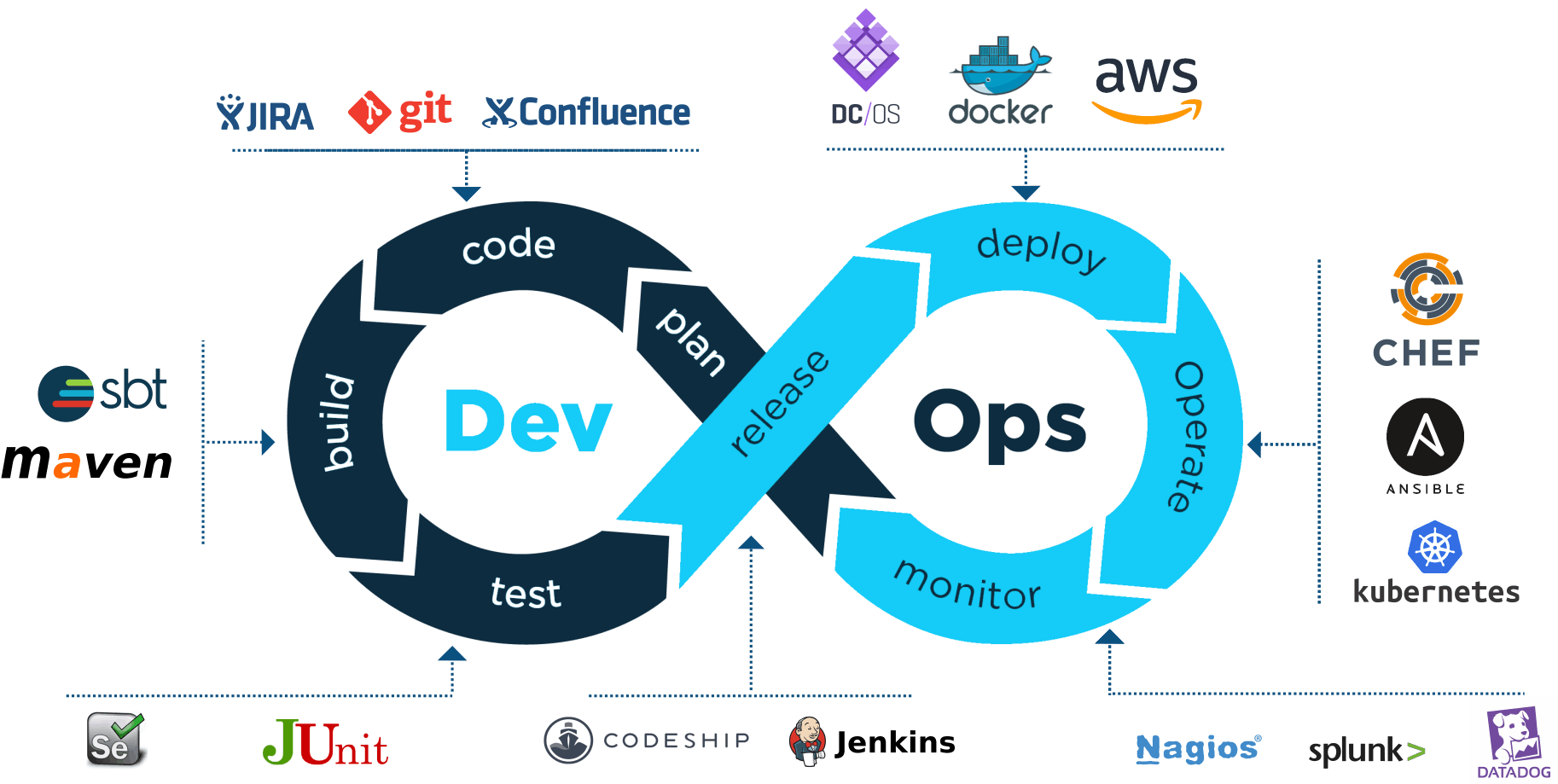What is Devops?
DevOps is a set of practices that combines software development and IT operations to increase the speed and quality of software delivery.
It is a cultural shift that emphasizes collaboration and communication between development and operations teams, with the goal of automating the software delivery process and ensuring that software can be released quickly, reliably, and frequently.
DevOps involves using tools and technologies that support automation, monitoring, and testing, as well as adopting agile and lean methodologies.
The ultimate goal of DevOps is to improve the overall efficiency and effectiveness of software development and delivery, while also enhancing the customer experience.

What is Automation ?
This refers to the use of technology to automate repetitive tasks or processes, reducing the need for human intervention.
In the context of software development and IT operations, automation can be used to streamline tasks such as code deployment, testing, and monitoring.
By automating these tasks, teams can save time and reduce the risk of errors
Example :
Automated code testing:
Using tools like Selenium or Appium to automate testing of web and mobile applications.
Continuous integration and deployment (CI/CD):
Automating the process of building, testing, and deploying code changes, using tools like Jenkins or CircleCI.
What is Scaling ?
This refers to the ability of a system to handle an increasing workload or user base without experiencing performance issues.
In the context of software development and IT operations, scaling often involves adding more computing resources to a system to support increased demand.
Scaling can be achieved through vertical scaling (adding more resources to a single machine) or horizontal scaling (adding more machines to a system).
Example :
Horizontal scaling:
Adding more web servers to handle increased website traffic, such as adding more virtual machines to an auto-scaling group in AWS.
Vertical scaling:
Adding more resources to a single server, such as increasing the amount of RAM or CPU cores.
What is Infrastructure of DevOps ?
This refers to the underlying hardware and software components that support a software application or service.
In the context of software development and IT operations, infrastructure includes servers, databases, networks, and other components that are necessary to run and manage applications.
Infrastructure can be managed in-house or through cloud-based services such as Amazon Web Services (AWS) or Microsoft Azure.
Example :
Virtual machines:
Using software like VirtualBox or VMware to create virtual machines that simulate physical hardware.
Containers:
Using containerization tools like Docker to create lightweight, portable applications that can be run on any system.
Cloud computing:
Using cloud-based services like AWS or Azure to host and manage infrastructure without needing to own and maintain physical hardware.
Why DevOps is so Important ?
Faster time to market:
DevOps practices enable faster software delivery, allowing organizations to respond quickly to changing market conditions and customer needs. This can give them a competitive advantage by getting new features and updates to customers faster than their competitors.
Increased collaboration and communication: DevOps emphasizes collaboration and communication between development, operations, and other teams involved in software delivery. This helps break down silos and fosters a culture of teamwork, leading to better outcomes and improved morale.
Improved quality: DevOps practices such as automated testing and continuous integration/continuous delivery (CI/CD) can help catch bugs and errors early in the development cycle, reducing the risk of production issues and improving overall software quality.
Greater efficiency and productivity: Automation and streamlined processes can reduce manual work and increase efficiency, freeing up teams to focus on more strategic work. This can also lead to faster feedback loops and better decision-making.
Enhanced customer experience: DevOps enables organizations to deliver software updates and new features more quickly and reliably, leading to a better overall experience for customers. This can result in increased customer satisfaction and loyalty.
Thanks for Reading my first blog 👍.
connect with me : https://www.linkedin.com/in/shivraj-salunkhe-5881141a4/
follow my blog channel : https://shivrajofficial.hashnode.dev/